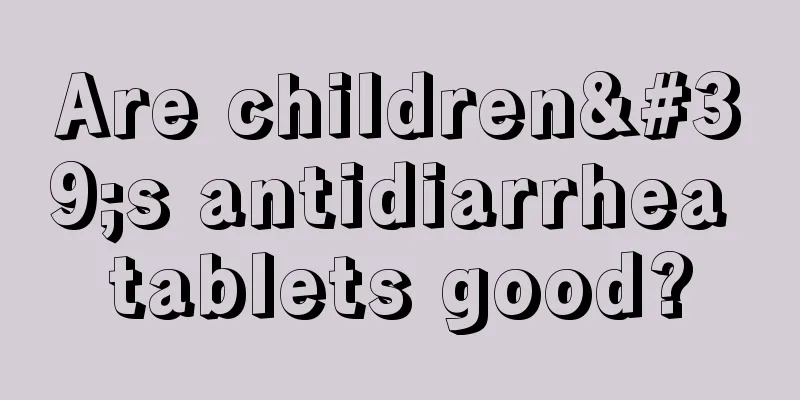How to tell if your baby has jaundice

|
Baby jaundice is one of the most common problems, so parents must understand in advance whether their baby has jaundice. In fact, there are two types of baby jaundice, physiological jaundice and pathological jaundice. Among them, physiological jaundice is the most common and the easiest to recover, while pathological jaundice depends on the specific symptoms. If the severity of the symptoms, you need to seek medical attention in time. So how do you determine whether your baby has jaundice? 1. How to tell if your baby has high jaundice There are symptoms to determine whether the baby has jaundice. Look at whether the baby's face and eyeballs are very yellow. If the jaundice value is high, the baby's face will be sallow. Medically, jaundice that occurs in babies under one month old (within 28 days of birth) is called neonatal jaundice. The main symptoms are yellowing of the skin, mucous membranes, and sclera. The child will have a loss of appetite, become restless, and his body temperature may also rise. Neonatal jaundice is a very common disease among newborns. Clinically, 60% of full-term babies will develop jaundice within one week after birth, and 80% of premature babies will develop jaundice within 24 hours after birth. Neonatal jaundice is mainly a disease caused by the incomplete development of the liver function of the newborn, abnormal bilirubin metabolism, and increased bilirubin concentration in the blood. It can be specifically divided into physiological jaundice and pathological jaundice. In addition, children with physiological jaundice do not experience much impact on their appetite and spirit except for yellowing of the skin, and the symptoms will generally disappear automatically within a month. Children with pathological jaundice not only have skin changes, but also usually cry, make a fuss, and refuse to drink milk. In this case, parents must take their children to the hospital for treatment as soon as possible, otherwise it may cause kernicterus, which has very serious consequences. 2. How long does it take for neonatal jaundice to subside? Neonatal jaundice includes breastfeeding jaundice and breast milk jaundice. Breastfeeding jaundice is caused by insufficient feeding in the early stage and less bowel movements, which leads to bilirubin accumulation in the body and causes skin jaundice. It usually starts to gradually disappear 5-7 days after birth. Breast milk jaundice begins a few days after birth and can last for 2-3 months. In severe cases, breastfeeding may be suspended. As long as jaundice is not severe, no treatment is required and it will neither affect growth nor vaccination. Physiological jaundice appears 2 to 3 days after birth, reaches its peak on the 4th to 6th day, and disappears on the 7th to 10th day. It lasts longer in premature infants and, except for mild loss of appetite, has no other clinical symptoms. If jaundice appears within 24 hours after birth, does not subside within 2 to 3 weeks, or even continues to deepen and worsen, or reappears after subsiding, or jaundice begins to appear within one to several weeks after birth, it is pathological jaundice. |
<<: How low can jaundice be reduced before discharge?
>>: How to get rid of jaundice quickly
Recommend
What should I do if my baby has a cold and stuffy nose?
The younger the baby is, the less sound his immun...
What to do if a 9-year-old boy wets the bed
Bedwetting is a very common phenomenon for childr...
The child suddenly has arm pain
Parents are very worried when their children beco...
What to do if your baby always tilts his head when sleeping
Any details on the baby will attract the attentio...
What should I do if my child has a fever in the middle of the night?
What children fear most is catching a fever in th...
What causes acute hemiplegia in children?
Children are the hope of every family. They hope ...
What to do if your child doesn’t like to do homework? Try these methods
Every parent has had the experience of being &quo...
What should I do if my baby vomits after drinking water?
Parents with children at home fear most that thei...
Is it a disease for babies to sweat when sleeping?
It is something that everyone knows that babies n...
Can vitiligo in children be cured?
Vitiligo is a skin disease that is very common cl...
What should I do if my baby has gastrointestinal dysfunction?
What kind of disease is gastrointestinal dysfunct...
What to do if your child keeps coughing
It is a very annoying thing for parents when thei...
Can nephrotic syndrome in children be cured?
The occurrence of kidney disease has a great impa...
Why does the child spit blood?
Children's physical condition is often prone ...
Which one should I supplement first if my child is deficient in calcium, iron or zinc?
Children need a lot of nutrition as they grow. If...









